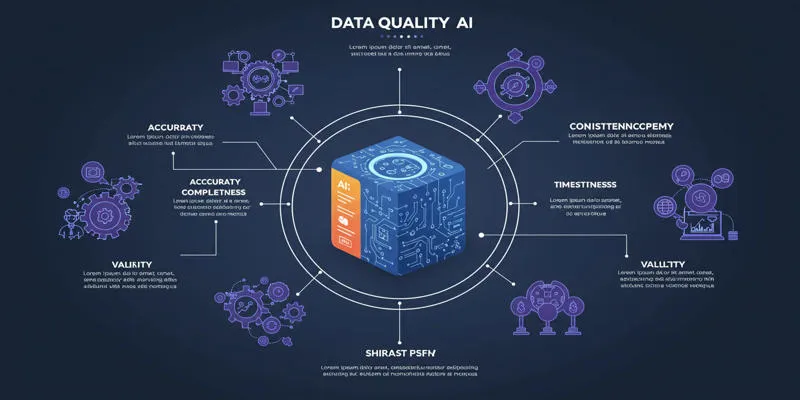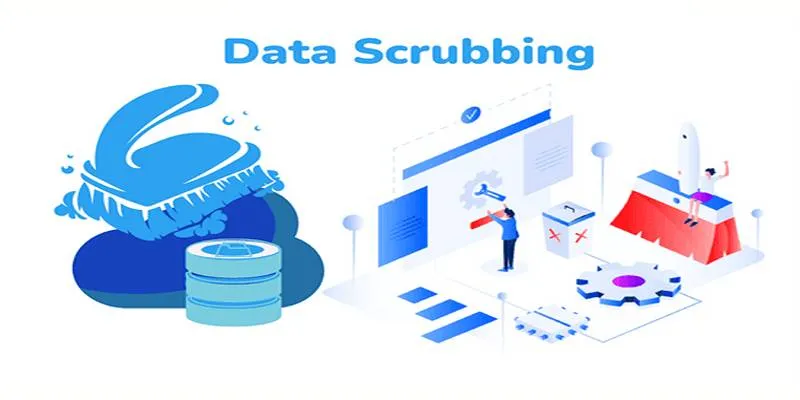Artificial intelligence (AI) is rapidly shaping our digital environment. In this era of digitization, businesses are seeking effective strategies for growth. AI offers powerful tools for faster responses and improved decision-making, from automation to deep insights. Businesses apply AI to meet client needs, streamline processes, and understand market dynamics. Real-time data analysis aids in risk reduction and uncovers new growth opportunities.
With digital transformation driven by AI, companies can stay ahead of changes. AI supports more intelligent forecasting and improved planning. Understanding the value of AI is essential to digital innovation. It’s a fundamental driver of advancement, not just a passing trend. Many companies now rely on AI for strategic growth. Understanding how AI transforms processes enables companies to flourish in a digital future.

Unlocking Efficiency Through AI Integration
AI enhances operational efficiency across industries by saving time on manual tasks. Smart tools monitor supply chains, track inventory, and automate scheduling, leading to faster results. AI-based workflow automation tools help companies increase performance, shorten turnaround times, and reduce delays. Digital transformation driven by AI enables businesses to operate smarter and faster.
Machines can handle vast amounts of data rapidly, detecting patterns often overlooked by humans. AI reduces guesswork, improving decision-making. While AI manages routine tasks, employees can focus on creative work, yielding better results with fewer mistakes. AI tools learn from past behavior, enabling smoother future processes. Companies achieve more without increasing effort. AI supports sustainable development and simplifies scalability. From HR to logistics, every department benefits from AI support. Faster, data-driven operations and improved efficiency help companies gain a competitive edge.

Enhancing Decision-Making with AI Analytics
In today’s data-driven world, raw data alone holds little value. AI converts facts into insights, enabling companies to forecast future trends. AI-powered dashboards help managers monitor real-time performance, offering warnings about hazards and opportunities. This shortens the decision-making process. AI discovers relationships between consumer behavior and sales patterns, guiding improved plans. Predictive analytics allows leaders to prepare for market changes, lowering uncertainty and saving money.
AI-based tools quickly analyze consumer feedback, assess satisfaction levels, and recommend improvements. Businesses respond more quickly to change with AI-supported decisions that are timely and accurate, reducing errors and improving results. By using data instead of speculation, AI eliminates bias, increases confidence in actions, and enhances preparation. For contemporary companies, AI analytics provide clarity, speed, and strategic strength.
Revolutionizing Customer Experience with AI
AI is shaping consumer interactions with companies. Intelligent chatbots provide instant responses, resolve issues, and answer inquiries. AI-based systems grasp emotions and language, delivering more intimate support. Faster service and clever recommendations from AI raise consumer satisfaction. Businesses use AI to suggest goods tailored to consumer demand, raising sales and engagement. AI logs consumer activity on applications and websites, evolving in real time to learn consumer preferences, smoothing out the user experience.
Powered by AI, voice assistants enable hands-free shopping and support. AI also supports multilingual services, allowing consumers to interact in their preferred language. Stronger loyalty and happier consumers are key aspects of AI’s business impact. AI-powered feedback systems enable businesses to gauge service quality and highlight areas needing improvement. AI helps companies provide consistently high-quality experiences that attract and retain consumers long-term.
Driving Innovation in Products and Services
AI accelerates innovation by allowing companies to rapidly test new concepts. Smart simulations simplify product design, suggesting improvements before development begins, saving time and money. Businesses use AI to identify market voids. Leveraging machine learning, they explore consumer requirements and trends to produce superior offerings. AI learns from current products to generate new ideas, providing teams with creative input for growth.
Digital transformation techniques driven by AI enable the customization of new services, offering what consumers truly desire and providing more value. After release, AI fixes problems, tests features, and enhances products by examining feedback immediately. Updates derive from actual data, leading to faster development and wiser planning. AI brings ideas to life by enabling teams to respond using insights derived from data, creating fresh opportunities for innovation, expansion, and long-term market relevance.
Reducing Operational Costs Through Smart Automation
AI helps save money in numerous ways. AI solutions enable faster and more precise completion of repetitive tasks, reducing mistakes and waste. Smart sensors track resources in real-time, better controlling supply and reducing energy consumption. Companies use AI to lower hand labor costs, saving hours of effort weekly and preventing expensive delays and downtime. Predictive maintenance alerts teams before machine breakdowns, lowering repair expenses and preventing closures.
AI-driven customer support reduces the need for large service teams. While operators focus on complex issues, AI chatbots handle everyday problems, lowering costs and enhancing services. Financial reports clearly illustrate AI’s value, with businesses observing better profits without sacrificing quality. Effective automation helps control budgets and supports development using fewer resources. AI enables smart savings across all areas of corporate operations.
Conclusion
In today’s digital environment, AI continues to drive change, bringing efficiency, insight, and speed to every process. AI delivers tangible benefits, from cost control to service improvement. Smart companies apply digital transformation driven by AI to enhance control and growth. AI enables better results and improves planning. As more businesses explore its advantages, the impact of AI will only grow. Every effective transformation demonstrates the value of AI. Companies must adopt AI as a fundamental digital tool to remain competitive.
 zfn9
zfn9





















